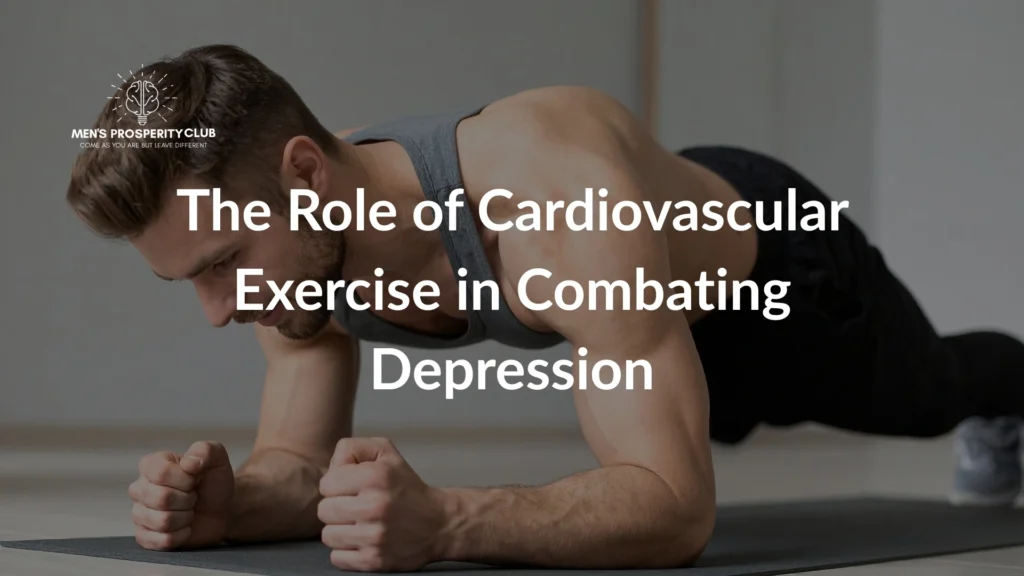Depression affects millions of people across the United Kingdom, with NHS England prescribing an estimated 89 million antidepressant drug items in 2023/24—a 3.3% increase from the previous year. However, alongside traditional treatments, cardiovascular exercise emerges as a powerful, evidence-based intervention that can significantly improve mental health outcomes whilst reducing the overall burden on healthcare systems.
Understanding the Depression Crisis in the UK
The mental health landscape in Britain paints a concerning picture. Currently, 8.7 million people receive antidepressant medications, representing a 2.1% increase compared to 2022/23. Moreover, NHS England spent £217.5 million on depression and anxiety medications in 2023, highlighting the substantial financial impact of mental health conditions on our healthcare system.
Despite these alarming statistics, research consistently demonstrates that physical activity, particularly cardiovascular exercise, offers remarkable therapeutic benefits for individuals struggling with depression. Furthermore, the National Institute for Health and Care Excellence (NICE) now recommends group exercise as a viable treatment option for people with mild to moderate depression.
The Science Behind Exercise and Mental Health
Cardiovascular exercise triggers a cascade of neurobiological changes that directly combat depressive symptoms. When we engage in aerobic activities, our bodies release endorphins—often called “feel-good” chemicals—which naturally elevate mood and reduce pain perception. Additionally, exercise increases the production of brain-derived neurotrophic factor (BDNF), a protein that promotes the growth and maintenance of brain cells.
Recent research from the UK Biobank study reveals compelling evidence about the relationship between cardiorespiratory fitness and mental health. The longitudinal analysis showed that individuals with low and medium cardiorespiratory fitness had significantly higher odds of developing depression or anxiety compared to those with high fitness levels. Specifically, people with low fitness demonstrated 1.485 times higher odds of experiencing mental health difficulties, whilst those with medium fitness showed 1.141 times higher odds.

Types of Cardiovascular Exercise for Depression Management
High-Impact Aerobic Activities
Running, jogging, and high-intensity interval training (HIIT) provide exceptional benefits for mental health. These activities rapidly increase heart rate and promote the release of mood-enhancing neurotransmitters. Research indicates that just three weekly 45-minute aerobic exercise sessions can improve cardiorespiratory fitness by 31% in older adults and 18% in younger individuals within three weeks.
Low-Impact Cardiovascular Options
Swimming, cycling, and brisk walking offer gentler alternatives for individuals who may find high-impact exercises challenging. These activities still deliver significant mental health benefits whilst reducing the risk of injury. Moreover, they provide excellent starting points for sedentary individuals beginning their fitness journey.
Group Exercise Classes
Dance classes, aerobics, and spinning sessions combine cardiovascular benefits with social interaction. The NHS specifically recommends group exercise sessions for depression treatment, typically involving more than one session per week with a trained practitioner for 10 weeks. This approach not only improves physical fitness but also addresses the social isolation often associated with depression.
Evidence-Based Benefits of Cardio for Depression
Immediate Psychological Effects
Cardiovascular exercise produces immediate mood improvements through several mechanisms. First, physical activity increases the production of serotonin, dopamine, and norepinephrine—neurotransmitters that regulate mood, motivation, and emotional stability. Second, exercise reduces cortisol levels, thereby decreasing stress and anxiety. Third, the rhythmic nature of many cardio activities promotes a meditative state that calms racing thoughts.
Long-Term Mental Health Improvements
Regular cardiovascular exercise creates lasting changes in brain structure and function. Studies demonstrate that consistent aerobic activity increases hippocampal volume, the brain region responsible for memory and emotional regulation. Furthermore, exercise enhances neuroplasticity, allowing the brain to form new neural pathways and adapt more effectively to stress.
Physical Health Benefits That Support Mental Wellbeing
The connection between physical and mental health cannot be overstated. Cardiovascular exercise improves sleep quality, increases energy levels, and enhances self-esteem through improved body image. Additionally, regular exercise reduces the risk of cardiovascular disease, diabetes, and stroke—conditions that often co-occur with depression and can exacerbate mental health symptoms.

Practical Implementation Strategies
Starting Your Exercise Journey
Beginning an exercise routine can feel overwhelming, particularly when dealing with depression. However, starting small increases the likelihood of long-term success. Begin with 10-15 minutes of moderate activity three times per week, gradually increasing duration and intensity as fitness improves. Walking represents an excellent starting point, as it requires no special equipment and can be easily incorporated into daily routines.
Overcoming Common Barriers
Depression often creates motivation challenges that make exercise seem impossible. Combat this by scheduling workouts at times when energy levels are highest, typically in the morning for many individuals. Additionally, having an exercise partner or joining a group class provides accountability and social support. Setting realistic goals and celebrating small victories helps maintain momentum during difficult periods.
Creating Sustainable Habits
Sustainability depends on finding enjoyable activities rather than forcing oneself through tedious workouts. Experiment with different types of cardiovascular exercise to discover what feels engaging and fun. Additionally, varying activities prevents boredom and works different muscle groups, promoting overall fitness development.
Professional Support and Exercise Prescription
The NHS increasingly recognises exercise as a legitimate medical intervention. General practitioners can now prescribe exercise programmes as part of comprehensive depression treatment plans. These programmes typically involve structured activities supervised by qualified exercise professionals who understand the unique needs of individuals with mental health conditions.
Exercise referral schemes operate throughout the UK, connecting patients with local fitness facilities and trained instructors. These programmes often subsidise costs, making exercise therapy accessible to individuals regardless of financial circumstances. Furthermore, many schemes offer specialised classes designed specifically for people managing mental health conditions.
Complementing Traditional Treatments
Cardiovascular exercise works synergistically with other depression treatments. When combined with psychotherapy, exercise enhances the effectiveness of cognitive-behavioural interventions by providing concrete evidence of personal capability and achievement. Similarly, individuals taking antidepressant medications often experience improved outcomes when incorporating regular physical activity into their treatment regimens.
However, exercise should not replace professional medical care for severe depression. Instead, it serves as a valuable complement to established treatments, potentially reducing medication requirements and improving overall quality of life.
Measuring Progress and Maintaining Motivation
Tracking exercise progress provides tangible evidence of improvement and helps maintain motivation during challenging periods. Simple metrics such as workout frequency, duration, and perceived effort offer valuable insights into developing fitness levels. Additionally, monitoring mood changes in relation to exercise sessions helps establish clear connections between physical activity and mental wellbeing.
Technology can support this process through fitness apps, heart rate monitors, and mood-tracking tools. However, avoid becoming overly focused on numbers at the expense of enjoying the activity itself. The goal is sustainable, long-term engagement rather than perfection.
Building a Supportive Environment
Success with exercise-based depression management requires a supportive environment. Family members and friends can play crucial roles by encouraging regular activity and participating in exercises when possible. Additionally, workplace wellness programmes increasingly recognise the importance of physical activity for employee mental health.
Community resources such as parkrun events, walking groups, and council-sponsored fitness classes provide opportunities for social connection whilst promoting physical activity. These programmes often welcome participants of all fitness levels and create inclusive environments for individuals managing mental health challenges.
The Future of Exercise-Based Mental Health Treatment
Research continues to reveal new connections between cardiovascular fitness and mental health. Recent studies explore optimal exercise prescriptions for different types of depression, personalised approaches based on individual preferences and capabilities, and the integration of technology to enhance accessibility and engagement.
As healthcare systems worldwide grapple with increasing mental health demands, exercise-based interventions offer cost-effective, accessible solutions that empower individuals to take active roles in their recovery. The growing body of evidence supporting cardiovascular exercise as a depression treatment ensures its continued integration into comprehensive mental healthcare strategies.
Taking the First Step Towards Better Mental Health
Cardiovascular exercise represents a powerful, scientifically-validated tool for combating depression. With over 8.7 million people in the UK currently receiving antidepressant medications, incorporating regular physical activity into treatment plans could significantly reduce the burden of mental illness whilst improving individual outcomes.
The evidence is clear: regular cardiovascular exercise produces meaningful improvements in mood, cognitive function, and overall quality of life. Moreover, these benefits extend beyond mental health to include enhanced physical fitness, better sleep, and reduced risk of chronic diseases.
For individuals struggling with depression, taking the first step towards regular exercise may feel daunting. However, with proper support, realistic goal-setting, and a gradual approach, cardiovascular exercise can become an enjoyable, sustainable component of comprehensive mental health management. The investment in physical activity pays dividends not only in improved mood but in enhanced resilience, self-efficacy, and overall life satisfaction.
As we continue to confront the mental health challenges facing our society, cardiovascular exercise stands as an accessible, evidence-based intervention that empowers individuals to participate actively in their healing journey whilst reducing the strain on our healthcare system.




